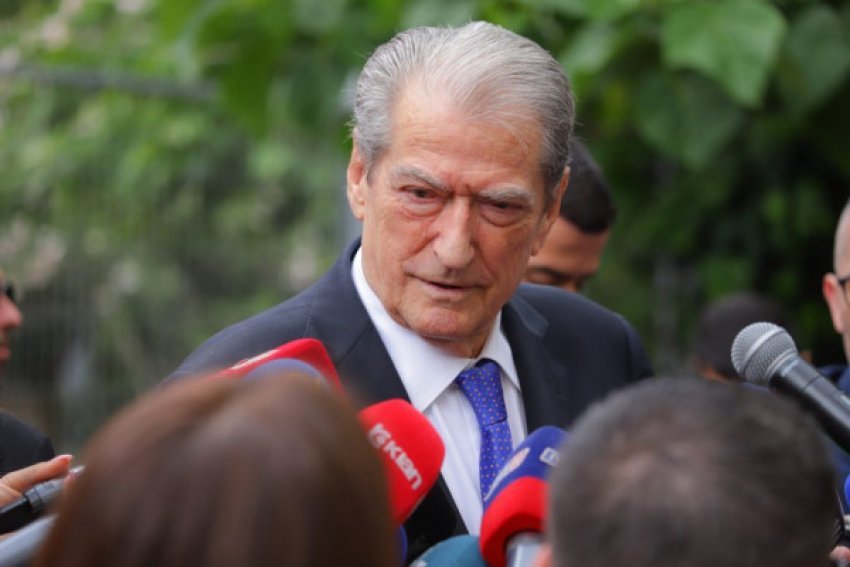Berisha targets SPAK chief as election fallout deepens

Photo: Sali Berisha, leader of the Democratic Party.
Democratic Party leader Sali Berisha appeared at the Special Prosecution Office (SPAK) on Monday, fulfilling a court-imposed obligation to report in person as part of the “obligation to appear” security measure. Instead of keeping a low profile, Berisha used the moment to launch a fresh political attack—this time targeting SPAK’s chief, Altin Dumani, accusing him of shielding electoral crimes.
Why is this important: Berisha led his party to one of its worst defeats in two decades in the May elections. Rather than accept responsibility, he has repeated a pattern seen after every political loss: blame manipulation, refuse accountability, and accuse others—including now, the head of the anti-corruption structure. The rhetoric masks his political failures and attempts to retain control over the Democratic Party.
Context: Berisha accused Dumani of ignoring over 15 criminal complaints filed by the opposition during the election campaign.
“The Democratic Party filed more than 15 lawsuits during the campaign, which, of course, will have the same fate as all others—because standing atop the amnesty for electoral crime is Altin Dumani himself, a servant of Edi Rama.”
But Dumani isn’t the only target in Berisha’s crosshairs.
Judicial hostility: For over two years, Berisha has openly attacked Judge Irena Gjoka, who signed off on his house arrest order in the corruption case tied to the former Partizani sports complex.
“The head of the GJKKO, Irena Gjoka, is a brazen, ordinary liar—a subject of the law. She lied to the Albanian state about her deportation from Greece. She received power of attorney to lift measures. Gjoka has been sentenced to prison in Ioannina.”
Shifting tone toward media: Following public backlash over aggressive behavior by his supporters toward journalists during a recent protest, Berisha shifted tone. He thanked the press on Monday and called on his allies to show restraint in dealing with reporters.
Rejecting parliamentary norms: Parliamentary custom dictates that the eldest MP opens the inaugural session of a new legislature. Berisha, 81, made it clear he would refuse the role.
“That will never happen. Our battle will continue until the return of the free vote to the Albanian people.”
Campaign secrecy: Berisha thanked American strategist Chris LaCivita, who oversaw the Democratic Party’s campaign, but refused to say whether they had communicated since the election.
“Privacy matters—even though I’m transparent, some things are private. I’ll limit myself to expressing my thanks.”
What Berisha has not yet disclosed, despite being legally required to do so, is the contract with LaCivita and the full amount paid for his services.


